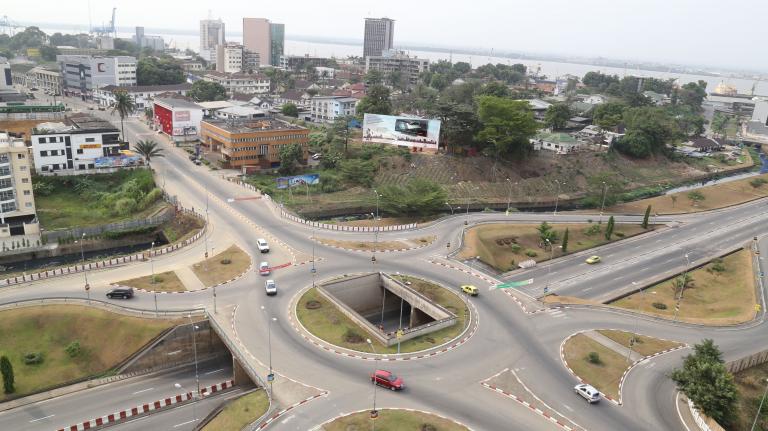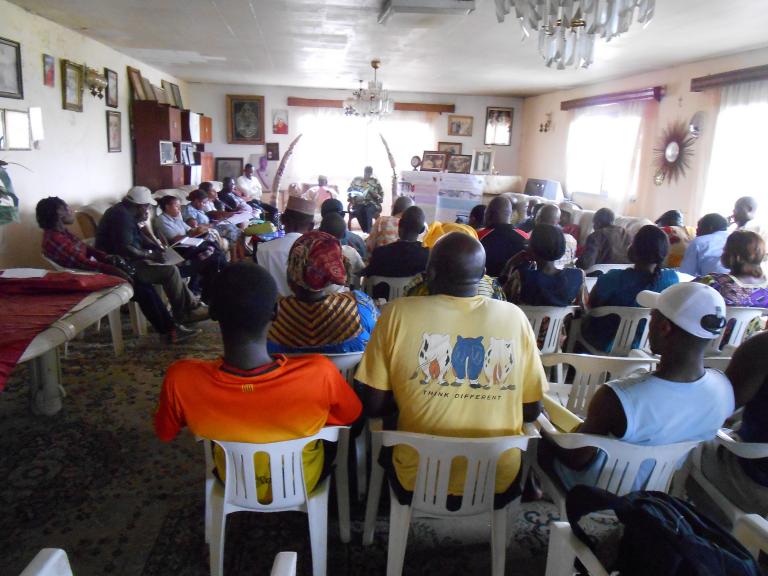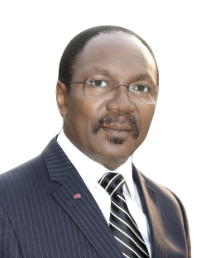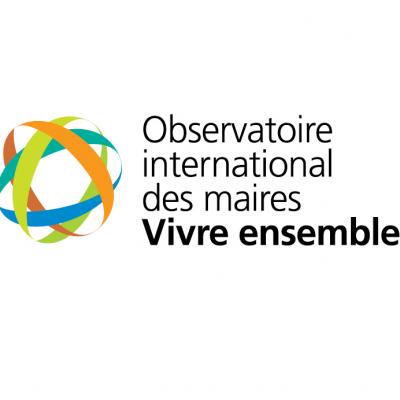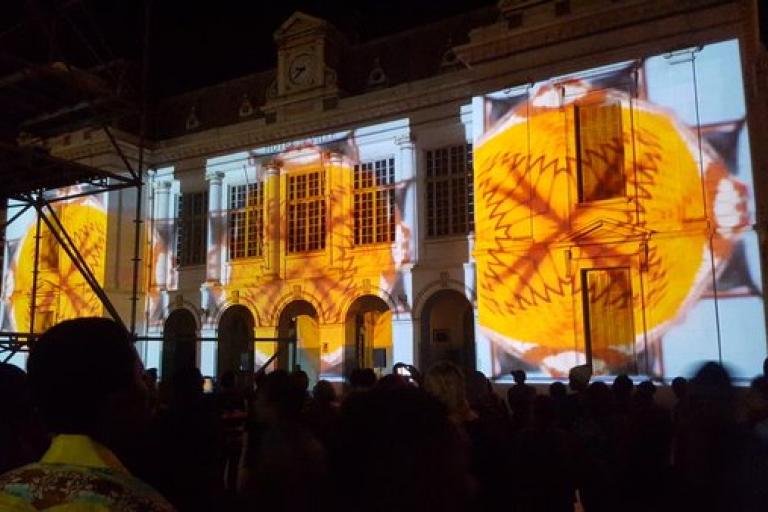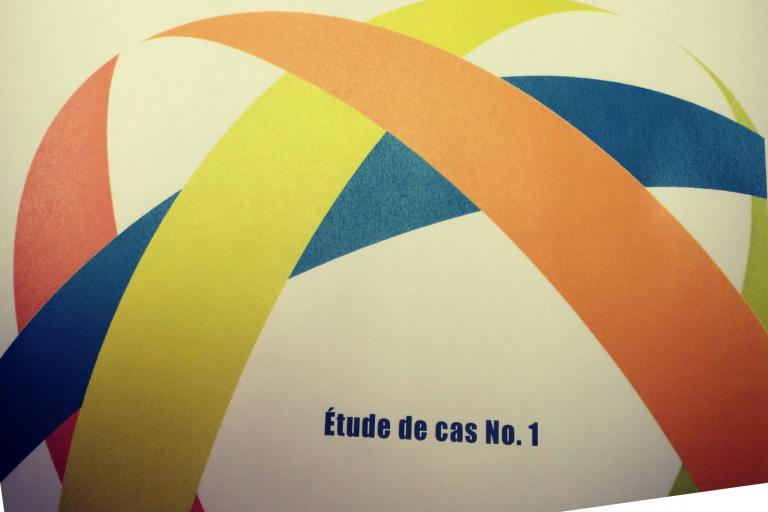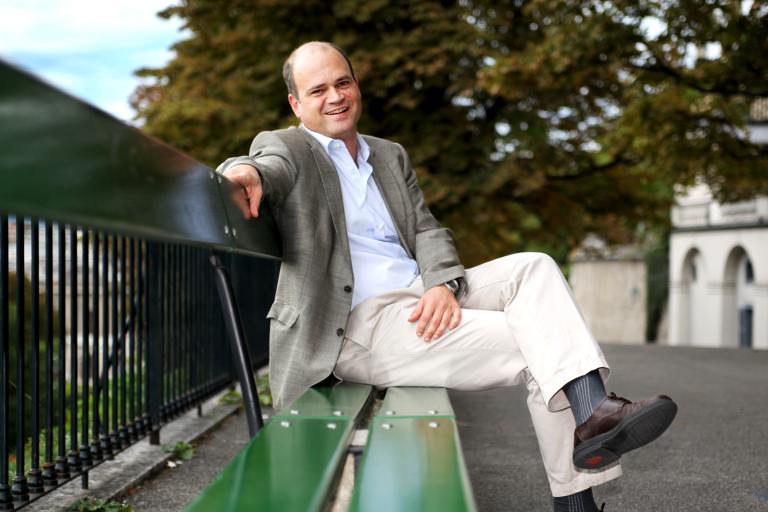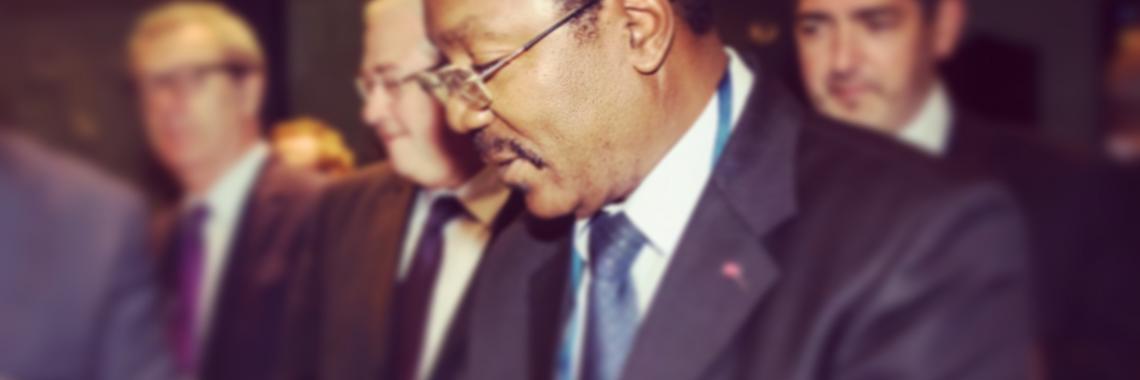
Interview: Fritz Ntonè, Mayor of Douala City*
As main port and economic capital of Cameroon, Douala concentrates a wide diversity of local and international population. During a mission to Montreal, we met Mr. Fritz Ntonè Ntonè, Mayor of Douala City*, who told us how recognizing diversity can be important to foster a better social cohesiveness in the city.
What is your vision of Living Together and what are the main challenges to Living Together in Douala?
Douala has tremendous cultural diversity with its demographics, some 3 million inhabitants and its geographical position at the convergence of Central Africa. Cameroon has more than 250 ethnic groups and 40 nationalities; these diverse communities gravitate naturally to the capital city, Douala. This diversity of origins and cultures unquestionably has its issues and challenges to economic development. This means creating a process around appeasement and social cohesiveness which must make a case for Living Together.
This is why, even before we signed the Montréal Declaration, and along with mayors of other cities, Doula had already undertaken a number of initiatives for Living Together. Our vision is very clear: All development stakeholders, whether they are native or immigrant, participate together in the social, cultural, political and economic well being of our economic capital city.
What specific initiatives or projects have you developed to this end?
The specific projects that we have developed involve various aspects of society. First and foremost, the traditional aspect: The Peace in the Village initiative involves tribal chiefs whose aim is to maintain peaceful relationships with all of the communities in Douala. The framework already exists and Douala encourages chiefs to move in this direction. Furthermore, we ensure that cultural organizations of all denominations are under the auspices of the city. For example, ngondos, which are traditional tribal meetings, have been formally opened to local sensitivities, and other communities are also invited. As well, other cultural organizations are open to everyone. This year, we are re-launching a major activity we call the Douala Carnival. This parade is a tribute to Douala’s cultural communities.
In terms of diplomacy, we have created a framework for international gatherings with all of the foreign communities who live in Douala. We should dedicate one week to this activity each year; presently, however, the event is held every two years for reasons of feasibility. In 2017, we are planning an evening celebrating cultural expressions from different countries including Senegal, India, etc. In addition to cultural events, there are also everyday relationships, and obviously we can show our hospitality starting with city hall. In the past, diplomats and consuls took charge of this, but we quickly realized that the task of welcoming newcomers should be assumed by the mayor. Thank goodness we had the understanding and assistance of the ministry of external relations’ local field office. As you certainly know, it is not easy to get a consul to attend a meeting or event. The hierarchical and protocol requirements were addressed in a positive way and relations were very friendly.
In terms of civil society, we also implemented a deliberation framework that more closely involves associations, as we believe they play an important role in civil society. We created a directory of some 300 associations, including both tribal and associations, with which we work to develop our city.
We are also conducting some major infrastructure projects with great social and cultural impacts, which is why we have created listening offices in all neighbourhoods to facilitate people’s understanding of and participation in projects. We believe that these formal initiatives will acknowledge and recognize neighbourhood and village leaders who are interested in city matters. One thing is certain: the mayor must pay close attention to make sure there is no injustice. When one neighbourhood has electricity and another doesn’t, people become frustrated. So the mayor must have a sense of fairness and an inclusive approach in everything he does.
As part of the AIMF convention, we recently organized a meeting with members of the Observatory. What message would you like to send to mayors of other cities facing challenges, whether similar or different challenges, to Living Together?
We must acknowledge, in a serious and formal way, all the processes that have been implemented to highlight the things that make Living Together flourish in our cities. Everything seems obvious, so much so that we tend not to see such processes as a necessity, even if we practice them everyday. Our societies live in anxiety and stress. Human beings are not at the centre of everyone’s concerns – people’s own profits and interests often take precedence. Look at what is happening in Africa in countries where there are conflicts.
The development of our cities has become a concept that national decision-makers must take seriously, which is something we see with the decentralization process. Everyone must take charge of their own responsibilities, for if peace and social cohesiveness come from the bottom up, we can work towards peace across the world. This fight must take place in the same way as the fight against climate change. I encourage mayors who have not considered this issue to do so. Local governance is essential and is part of the development strategy in our cities, leading us to the well-being of our respective populations.
